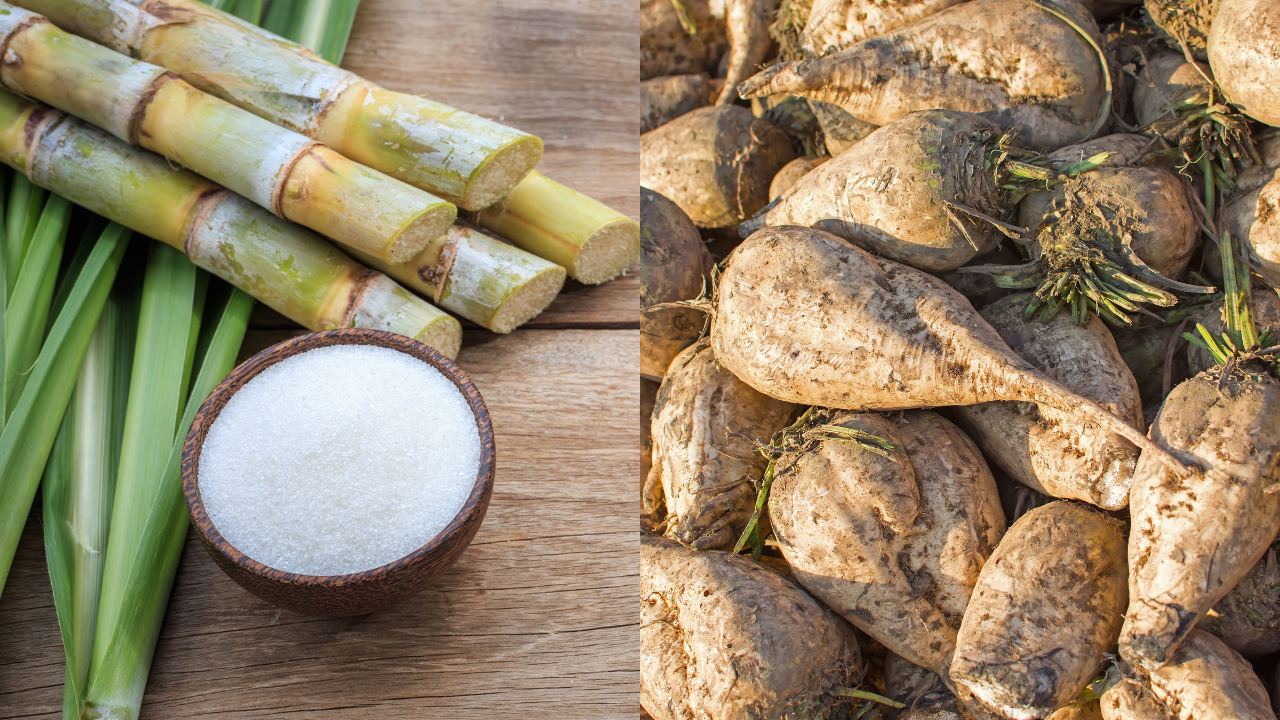Comprehending the Nutritional Advantages of Beetroot Sugar Vs Walking Cane Sugar for Health And Wellness Conscious Consumers
When checking out the dietary implications of beet sugar versus walking cane sugar, health-conscious customers discover that both selections largely include sucrose and offer similar calorie values, each contributing about 16 calories per teaspoon. In spite of this resemblance, neither kind confers substantial health benefits, as they are lacking important nutrients. Exploring the broader influences, including environmental factors to consider and lasting health and wellness results of sugar usage, might light up much more nuanced differences in between these two sugars.
Nutritional Account and Caloric Worth of Beet Sugar and Walking Stick Sugar
Although both beetroot sugar and walking cane sugar are largely made up of sucrose, their dietary accounts and caloric values are incredibly similar. Each gives about 16 calories per teaspoon and is composed practically entirely of carbohydrates, with minimal quantities of healthy protein or fat. These sugars also lack substantial quantities of vitamins or minerals. The refinement procedure remove the majority of the integral nutrients, rendering both types almost the same in regards to nutrition. There are trace differences in the impurities that stay after handling, which can a little influence the flavor and color of the sugars, yet these are minimal in terms of health effect. For consumers concentrating on nutritional impact, the selection between beetroot and cane sugar is more about individual choice or prospective environmental problems as opposed to nutritional differences. Both should be eaten in moderation within a balanced diet plan due to their high calorie web content and lack of crucial nutrients (beet sugar vs cane sugar).
Ecological Impact and Sustainability of Sugar Manufacturing
While the dietary distinctions in between beet sugar and walking stick sugar are minimal, their production procedures offer even more substantial variations, especially in regards to ecological impact and sustainability. Cane sugar manufacturing frequently entails extensive land usage and logging, which contributes to habitat devastation and biodiversity loss. This farming is also connected with high water usage and water pollution due to the runoff of pesticides and look at this website plant foods. In comparison, beetroot sugar manufacturing typically needs less land and can be cultivated in even more warm climates, which might decrease the need for irrigation and the connected water source deficiency.
Nevertheless, beet farming is not without its ecological obstacles; it involves substantial energy inputs, especially in the northern environments where it is expanded, due to the need for longer heating durations in sugar look at this site processing. Both sugar beet and sugar walking cane sectors are exploring a lot more sustainable techniques, consisting of crop turning, natural farming, and enhanced waste management methods to mitigate these effects.
Wellness Consequences and Recommendations for Sugar Consumption
Regardless of their marginal nutritional distinctions, both beetroot sugar and walking stick sugar can have damaging health effects when eaten in extra. High intake of either sort of sugar contributes to a variety of wellness concerns, including obesity, type 2 diabetes mellitus, and heart problem. Both sugars are pure sucrose and deal no important nutrients besides calories, causing quick spikes in blood glucose levels upon intake.


Verdict
